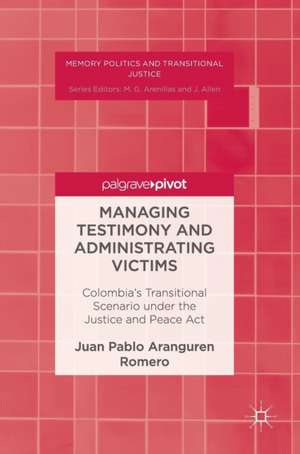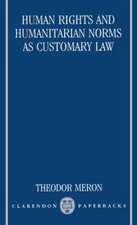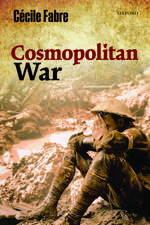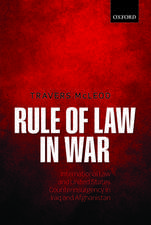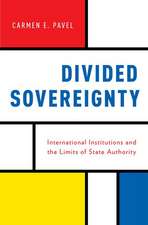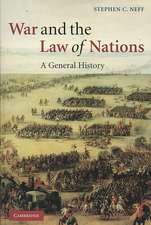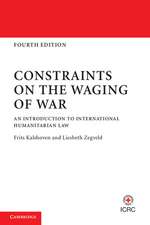Managing Testimony and Administrating Victims: Colombia’s Transitional Scenario under the Justice and Peace Act: Memory Politics and Transitional Justice
Autor Juan Pablo Aranguren Romeroen Limba Engleză Hardback – dec 2016
| Toate formatele și edițiile | Preț | Express |
|---|---|---|
| Paperback (1) | 411.54 lei 6-8 săpt. | |
| Springer International Publishing – 29 apr 2018 | 411.54 lei 6-8 săpt. | |
| Hardback (1) | 417.68 lei 6-8 săpt. | |
| Springer International Publishing – dec 2016 | 417.68 lei 6-8 săpt. |
Din seria Memory Politics and Transitional Justice
- 15%
 Preț: 579.52 lei
Preț: 579.52 lei - 20%
 Preț: 691.19 lei
Preț: 691.19 lei - 20%
 Preț: 691.14 lei
Preț: 691.14 lei - 15%
 Preț: 588.50 lei
Preț: 588.50 lei -
 Preț: 386.99 lei
Preț: 386.99 lei -
 Preț: 387.75 lei
Preț: 387.75 lei -
 Preț: 384.86 lei
Preț: 384.86 lei -
 Preț: 383.71 lei
Preț: 383.71 lei - 18%
 Preț: 789.98 lei
Preț: 789.98 lei - 15%
 Preț: 693.90 lei
Preț: 693.90 lei - 15%
 Preț: 698.80 lei
Preț: 698.80 lei - 18%
 Preț: 727.00 lei
Preț: 727.00 lei - 18%
 Preț: 779.26 lei
Preț: 779.26 lei - 18%
 Preț: 889.43 lei
Preț: 889.43 lei -
 Preț: 453.21 lei
Preț: 453.21 lei - 15%
 Preț: 691.91 lei
Preț: 691.91 lei -
 Preț: 416.71 lei
Preț: 416.71 lei -
 Preț: 447.99 lei
Preț: 447.99 lei -
 Preț: 484.47 lei
Preț: 484.47 lei - 18%
 Preț: 782.72 lei
Preț: 782.72 lei - 18%
 Preț: 732.40 lei
Preț: 732.40 lei
Preț: 417.68 lei
Nou
Puncte Express: 627
Preț estimativ în valută:
79.93€ • 83.14$ • 65.99£
79.93€ • 83.14$ • 65.99£
Carte tipărită la comandă
Livrare economică 14-28 aprilie
Preluare comenzi: 021 569.72.76
Specificații
ISBN-13: 9783319458946
ISBN-10: 3319458949
Pagini: 170
Ilustrații: XV, 130 p.
Dimensiuni: 148 x 210 x 10 mm
Greutate: 0.33 kg
Ediția:1st ed. 2017
Editura: Springer International Publishing
Colecția Palgrave Macmillan
Seria Memory Politics and Transitional Justice
Locul publicării:Cham, Switzerland
ISBN-10: 3319458949
Pagini: 170
Ilustrații: XV, 130 p.
Dimensiuni: 148 x 210 x 10 mm
Greutate: 0.33 kg
Ediția:1st ed. 2017
Editura: Springer International Publishing
Colecția Palgrave Macmillan
Seria Memory Politics and Transitional Justice
Locul publicării:Cham, Switzerland
Cuprins
1. The Origins of Victimization and the Administration of War in Colombia .- 2. Justice and Peace in times of Impunity and War .- 3. Voice, Testimony, Truth, and Memory .- 4. Maintaining Exclusion .- 5. Conclusion.
Notă biografică
Juan Pablo Aranguren Romero is Assistant Professor in the Department of Psychology at the University of the Andes, Colombia. He holds an MA in Social Anthropology and a PhD in Social Sciences. His research focuses on the intersections of body, suffering, and political violence. Aranguren is author of Cuerpos al límite: tortura, subjetividad y memoria en Colombia ( 2016) and Las inscripciones de la guerra en el cuerpo de los jóvenes combatientes (2011).
Textul de pe ultima copertă
This book analyzes the implementation of Law 975 in Colombia, known as the Justice and Peace Law, and proposes a critical view of the transitional scenario in Colombia from 2005 onwards. The author analyzes three aspects of the law: 1) The process of negotiation with paramilitary groups; 2) The constitution of the Group Memoria Histórica (Historic Memory) in Colombia and 3) The process of a 2007 law that was finally not passed. The book contains interviews with key actors in the justice and peace process in Colombia. The author analyses the contradictions, tensions, ambiguities and paradoxes that define the practices of such actors. This book highlights that a critical view of this kind of transitional scenario is indispensable to determine steps towards a just and peaceful society.
Juan Pablo Aranguren Romero is Assistant Professor in the Department of Psychology at the University of the Andes, Colombia. He holds an M.A. in Social Anthropology and a Ph.D. in Social Sciences. His research focuses on the intersections of body, suffering, and political violence. Aranguren is author of Cuerpos al límite: tortura, subjetividad y memoria en Colombia(2016) and Las inscripciones de la guerra en el cuerpo de los jóvenes combatientes (2011).
Caracteristici
Explores the subjects of memory and reconciliation in politics in Colombia in 2005 Critiques the emerging contradictions between memory, politics, and academia in Colombia during the Álvaro Uribe Vélez administration Analyses how to administer transitional scenarios during war Presents a critical view of the transitional dispositive scenario in Colombia from 2005 onwards
